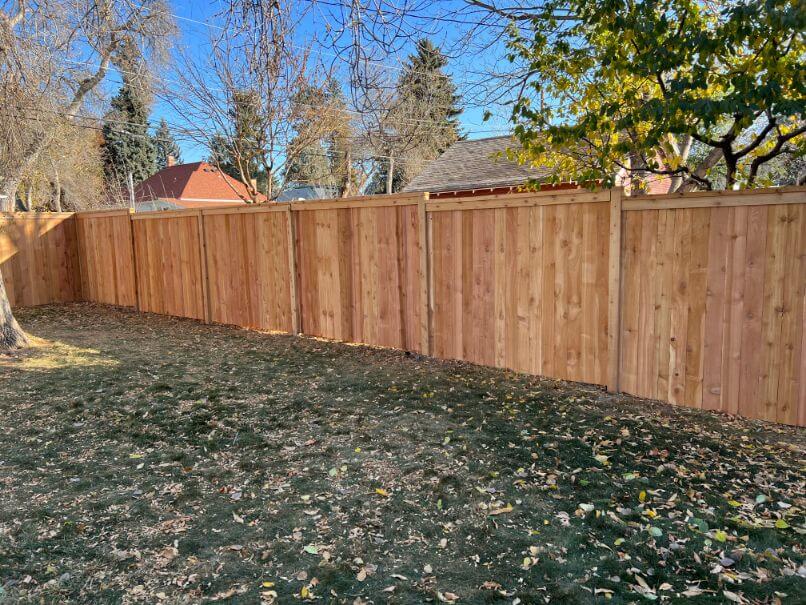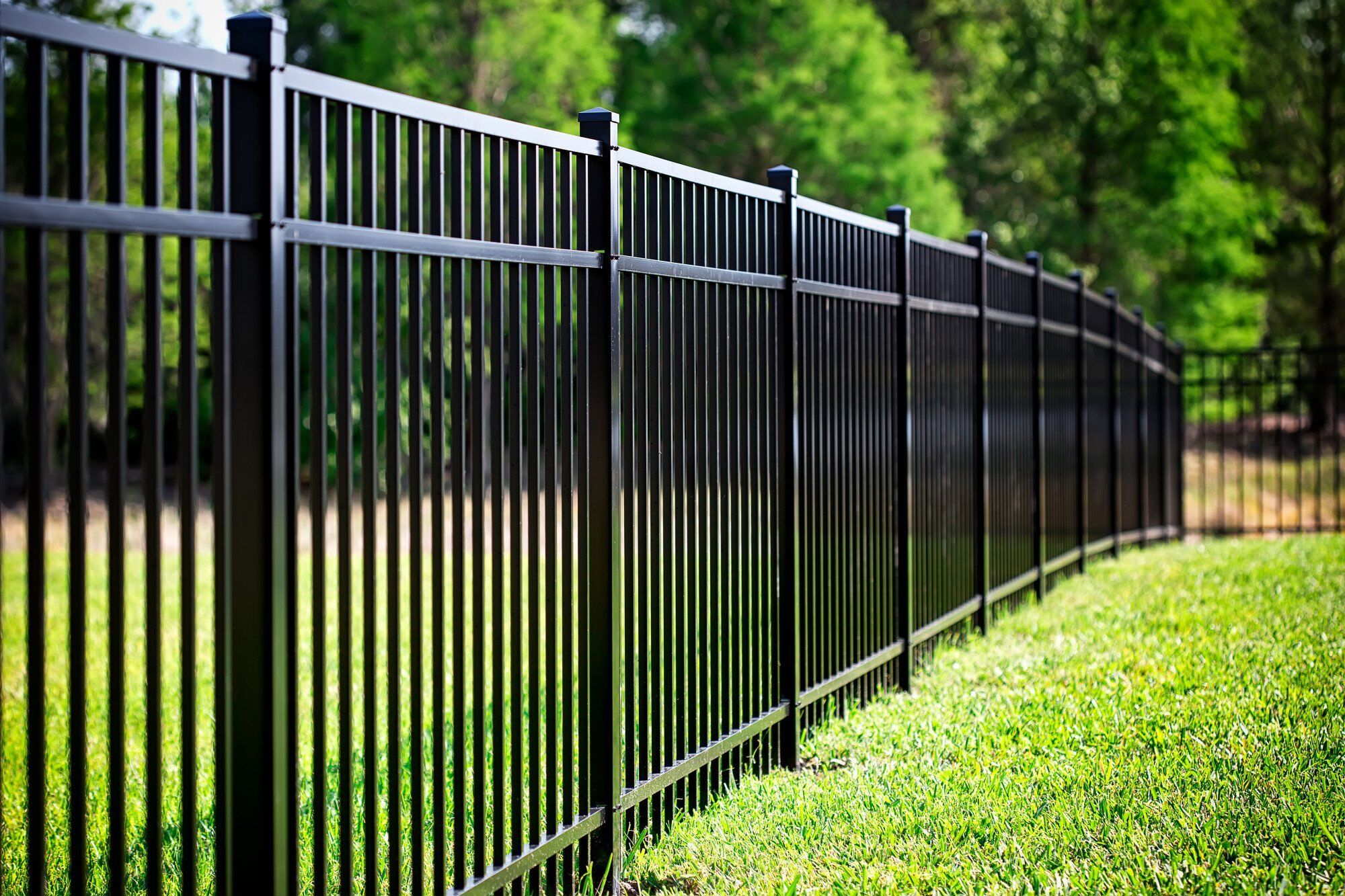All Categories
Featured
What Kinds Of Secure Fencing Materials Are Offered for Residential and Commercial Projects?

When planning to mount a fencing, selecting the appropriate material is essential for meeting the visual, practical, and budgetary requirements of your home. Whether for commercial or property use, modern-day fence options provide a selection of choices to match specific requirements. Right here's an extensive appearance at the most typical fence materials available today.
- Wood Secure fencing. Wood is a traditional option for house owners seeking appeal and convenience. It functions well for personal privacy fencings, ornamental styles, and limit marking.
Key Advantages of Timber Secure Fencing:
Visual Versatility: Can be crafted into different styles, consisting of picket, latticework, and board-on-board designs. Affordable: Offers cost for numerous jobs, specifically smaller domestic ones. Personalized: Conveniently repainted or stained to match a home's exterior. Downsides: Needs routine upkeep, such as securing and tarnishing, to secure against weathering and bugs.
- Vinyl Secure fencing. Plastic fencing has grown in appeal due to its streamlined look and very little maintenance requirements. It's a wonderful option for both domestic and industrial spaces.
Benefits:
Resilient and sturdy: Vinyl withstands weather condition damages, bugs, and fading. Easy Maintenance: A fast wash with soap and water maintains it looking immaculate. Fashionable Choices: Can be found in several shades and appearances, some mimicking natural wood. Considerations: The first cost is higher, however the lasting cost savings on upkeep can make it a smart financial investment.
- Chain-Link Fence. Chain-link secure fencing is a functional remedy for securing huge areas, commonly utilized in industrial, industrial, and recreational residential properties.
Advantages:
Cost: One of one of the most cost-effective fence options. Toughness: Takes on tear and wear, also in hard atmospheres. Exposure: Offers a clear line of vision while maintaining security. Drawbacks: Limited visual appeal and personal privacy unless integrated with slats or foliage.
- Light weight aluminum Fencing. Light weight aluminum provides a sophisticated appearance without jeopardizing on durability. It's especially prominent for attractive or protection purposes.
Secret Features:
Rust-Free: Suitable for moist climates or swimming pool rooms. Reduced Maintenance: Calls for very little upkeep contrasted to iron or timber. Classy Look: Frequently used to simulate wrought iron without the significant cost tag. Considerations: Not as solid as steel, making it much less appropriate for high-security demands.
- Wrought Iron Fencing. Known for its timeless beauty and longevity, functioned iron is a favored for upscale buildings.

Advantages:
Strength and Protection: Difficult to break or bend, making it suitable for high-security applications. Personalized Designs: Can be formed right into complex patterns for an unique look. Longevity: With correct upkeep, functioned iron can last for decades. Disadvantages: Calls for normal upkeep to avoid corrosion and is among the much more expensive fencing options.
- Composite Fence. Compound fencings combine wood fibers and plastic for a long lasting, green alternative.
Advantages:
Eco-friendly: Often made from recycled products. Reduced Maintenance: Immune to rot, pests, and bending. All-natural Look: Imitates the appearance of timber without the maintenance. Drawbacks: Higher in advance expense compared to traditional timber fencing.
- Bamboo Fencing. Bamboo is a elegant and lasting choice, especially for homes looking for an all-natural aesthetic.
Benefits:
Eco-Friendly: Bamboo is sustainable and biodegradable. Unique Appearance: Adds a exotic or Zen-inspired touch. Economical: Frequently more economical than hardwoods. Disadvantages: Much less sturdy in extreme environments or against prolonged direct exposure to moisture.
- Steel Secure fencing. Steel secure fencing supplies unequaled stamina, making it a best option for commercial and industrial needs.
Attributes:
Sturdy Strength: Manages substantial impacts and weather obstacles. Adjustable Surfaces: Powder layer improves its look and durability. Safety: Perfect for locations requiring boosted protection. Considerations: Greater expense and weight make it less suitable for small tasks.
- Stonework or Rock Fencing. For buildings seeking a long-term and highly durable rock, alternative or stonework fencing is a premium choice.
Benefits:
Ultimate Toughness: Withstands extreme weather condition and lasts for years. Soundproofing: Blocks noise, making it perfect for metropolitan areas. Deluxe Aesthetic: Supplies an upscale look that enhances premium properties. Drawbacks: High installation prices and restricted adaptability in style adjustments.
How to Choose the Right Material. When choosing a fence product, consider the list below aspects:
Objective: Do you need safety, privacy, or decorative allure? Budget: Some products, like wood and chain-link, are cost-efficient, while wrought iron and rock come with a costs. Upkeep: Materials like plastic and light weight aluminum are less complicated to keep, while timber and functioned iron demand routine care. Environment: Some materials, such as bamboo or untreated wood, are much less suitable for extreme weather. Final thought. Fence products today provide a vast variety of options to suit different budget plans, functions, and styles. Whether you prioritize resilience, looks, or eco-friendliness, there's a product that will fit your demands. By functioning with a specialist fencing specialist, you can check out these options extensive and ensure a flawless installation for your business or domestic task.
Latest Posts
Discover WyHy Federal Credit Union – Exclusive Benefits for Your Financial Success
Published en
1 min read
Why Routine Vehicle Maintenance at Montclare Auto Repair Keeps Your Wallet Happy
Published en
1 min read
Seamless Aluminum Rain Gutters: The Smart Selection for Your Home
Published en
1 min read
More
Latest Posts
Discover WyHy Federal Credit Union – Exclusive Benefits for Your Financial Success
Published May 28, 25
1 min read
Why Routine Vehicle Maintenance at Montclare Auto Repair Keeps Your Wallet Happy
Published May 26, 25
1 min read
Seamless Aluminum Rain Gutters: The Smart Selection for Your Home
Published May 24, 25
1 min read